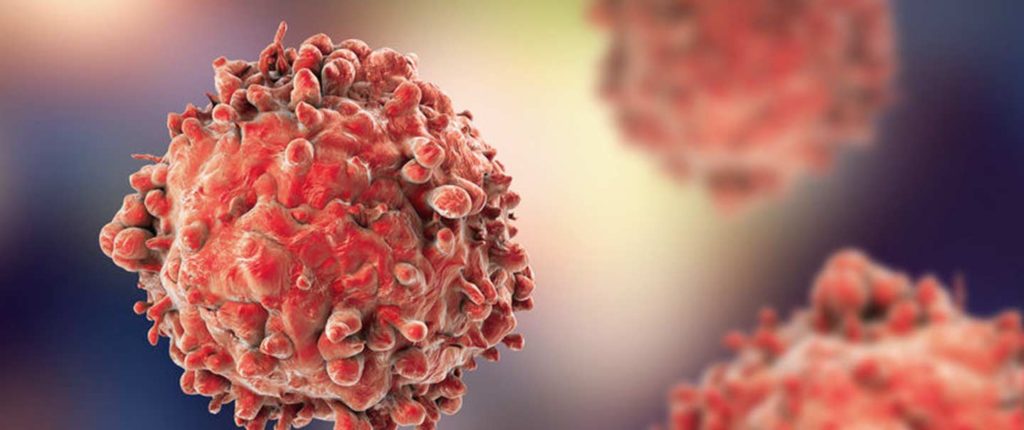
Take Action at the Cancer Center
Your body is made up of trillions of cells, which all work together to provide structure for your body, absorb nutrients from the food you eat, convert those nutrients into energy, and perform specialized functions.
Cells also store your hereditary information (or genes). They grow and divide in order to form new cells when your body needs them, such as to replace cells that have become old or damaged.
Sometimes, this normally methodical process malfunctions — either by cells growing and dividing when they shouldn’t or not dying off when they should. If this happens, these abnormal cells can turn into cancer.
What is Cancer?
Cancer is not just one disease — it’s the name given to a collection of related diseases, and it can start nearly anywhere in your body. In all types of cancer, your body’s cells begin to divide without stopping, sometimes forming tumors (masses of tissue) and spreading into the surrounding tissues.
Not all tumors are cancerous. Benign (non-cancerous) tumors don’t spread into and invade nearby tissues, and they don’t normally grow back once they have been removed.
On the other hand, malignant (cancerous) tumors do invade nearby tissues. As they grow, cells from malignant tumors can break off and enter the blood or lymph system (a major part of your immune system), travel to other places in your body, and form new tumors.
Cancer cells differ from normal cells in many ways. For instance:
- They are less specialized, meaning they don’t mature into distinct cell types (such as a bone cell) that have a specific function.
- They can ignore signals from the body that tell them to stop dividing or that initiate a process known as programmed cell death (apoptosis), which gets rid of unneeded cells.
- They can cause normal cells to change their behavior, such as forming blood vessels to supply tumors with oxygen and nutrients.
- They can hide from the immune system (a network of organs, tissues, and cells that protect your body from infections) — and even use it to stay alive and grow.
What Causes Cancer?
Cancer is caused by certain changes to your genes, which control how your cells function — especially how they grow and divide.
Cancer can be a result of:
- An inheritance from parents
- Errors that happen during cell division
- Damage to DNA from environmental exposures, such as tobacco smoke, radiation, and ultraviolet rays from the sun
If cancer spreads from the place where it first started to another location, this is called metastasis. Metastasis takes on the same name and type of cancer cells as the original — or primary — cancer. For instance, breast cancer that has spread to the lung is called metastatic breast cancer, not lung cancer.
Types of Cancer
There are over 100 types of cancer, and they’re usually named for the organs or tissues they come from, such as brain cancer or colon cancer.
Common cancer types include:
- Bladder Cancer
- Breast Cancer
- Colon and Rectal Cancer
- Endometrial Cancer
- Kidney Cancer
- Leukemia
- Liver Cancer
- Lung Cancer
- Melanoma
- Non-Hodgkin Lymphoma
- Pancreatic Cancer
- Prostate Cancer
- Thyroid Cancer
Search the National Cancer Institute’s Cancer Types A to Z to learn about each type of cancer.
What Does a Cancer Diagnosis Mean?
At the University of Illinois Cancer Center, we believe that patients are survivors upon diagnosis. Whether you have been diagnosed with cancer for 5 minutes or have been done with treatment for 5 years, you are a cancer survivor.
Cancer programs at our partner institution, UI Health, feature dedicated teams of radiologists, medical and surgical oncologists, surgeons, nurses, and therapists who are committed to providing the best care and support to patients and their families from diagnosis through treatment. Our programs feature state-of-the-art diagnostic and treatment options, and every patient has access to the latest cancer resources, including educational opportunities, and support and survivorship groups.
UI Health is among the select group of medical centers accredited by the Commission on Cancer, a program of the American College of Surgeons that recognizes cancer programs for their commitment to providing comprehensive, high-quality, and multidisciplinary patient-centered care. We are your partner in your cancer fight.
Our Commitment to Cancer Disparities
At the University of Illinois Cancer Center, our researchers and providers are dedicated to addressing the cancer inequities facing minority populations in the Chicagoland area. Though cancer affects all population groups in the US, certain groups bear a disproportionate burden of cancer compared to others.
Cancer disparities are differences in cancer measures such as:
- Incidence (new cases)
- Prevalence (all existing cases)
- Mortality (deaths)
- Morbidity (cancer-related health complications)
- Survivorship, including quality of life after treatment
- Burden of cancer or related health conditions
- Screening rates
- Stage at diagnosis
Though cancer disparities are typically considered in the context of race and ethnicity, other population groups may experience them as well. Some examples include groups defined by gender/sexual identity, geographic location, income, and education.
7 Questions to Ask After a Cancer Diagnosis
A cancer diagnosis can be overwhelming — and that’s where University of Illinois Cancer Center experts come in. When you meet with your care team, it can be helpful to come prepared with questions, such as:
- What type of cancer do I have?
- What is the stage of my cancer, and how serious is it?
- Has it spread to other areas of my body?
- Will I need more tests before treatment begins? Which ones?
- Will I need a specialist(s) for my cancer treatment?
- Will you help me find a doctor to give me another opinion on the best treatment plan for me?
- What are my chances of survival?
“Questions to Ask Your Doctor about Your Treatment” was originally published by the National Cancer Institute.

